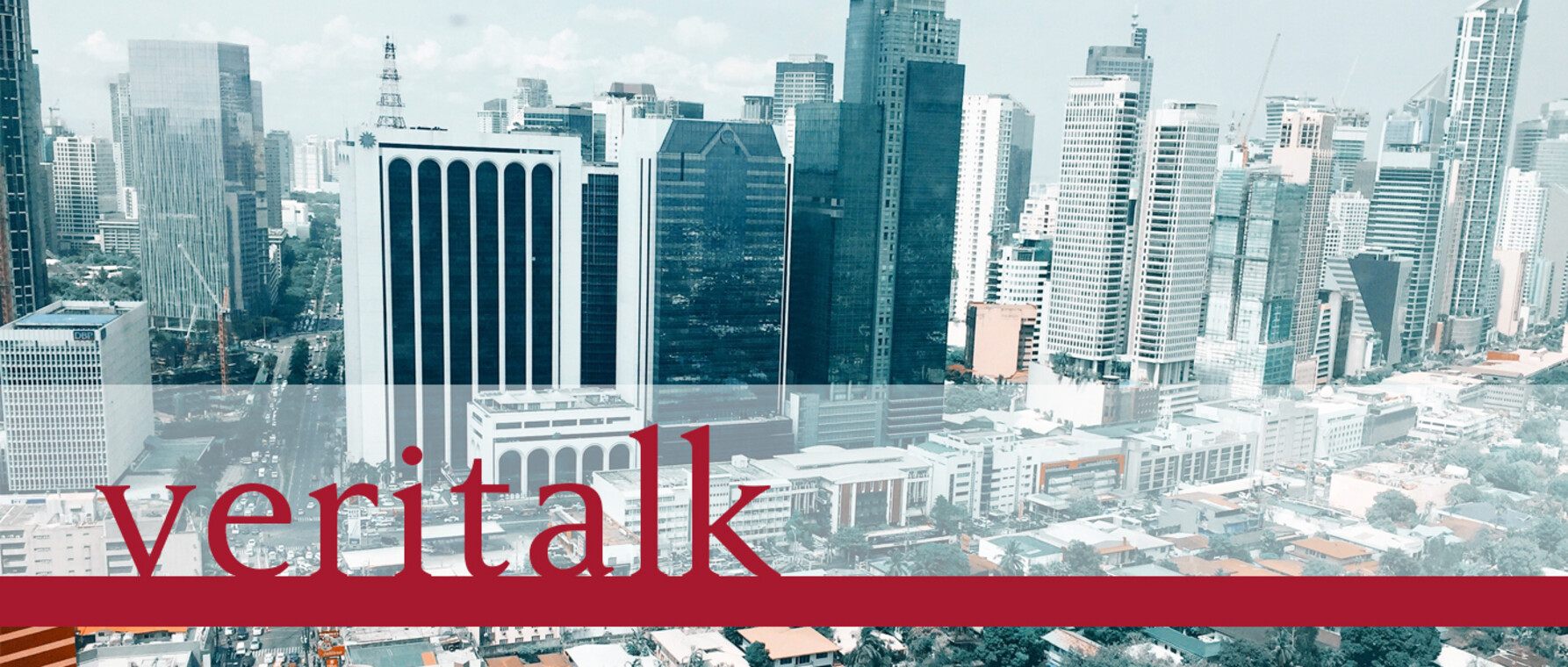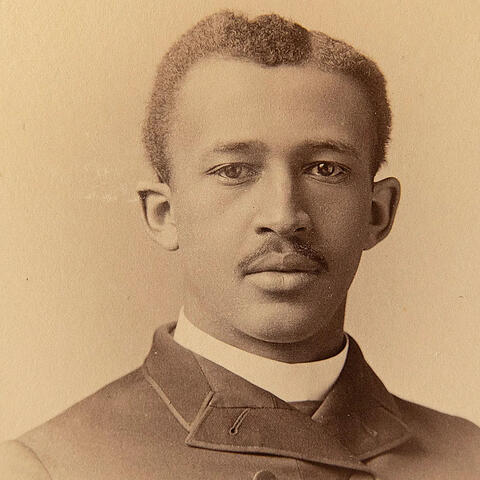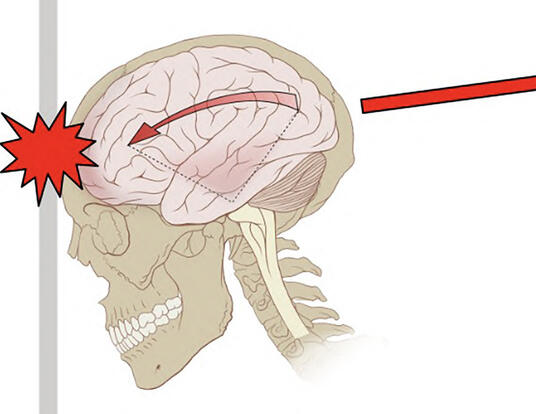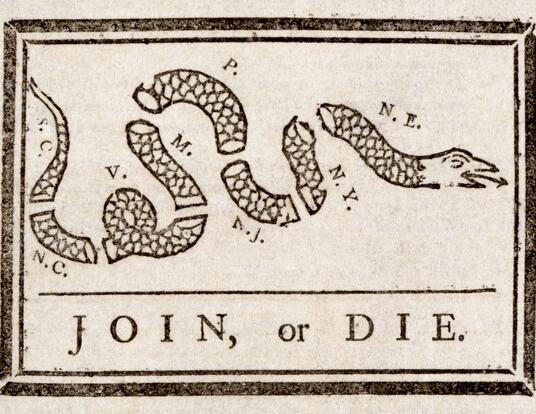Who Owns the Night?
PhD candidate Chrystel Oloukoi explores the ways that race, gender, and class shape the nightlife culture in Johannesburg and Lagos

PhD candidate Chrystel Oloukoi explores the ways that race, gender, and class shape the nightlife culture in Johannesburg and Lagos. In Johannesburg, developers have created a "safer" nightlife district in the heart of the city, but what feels safe for some can be dangerous for others. In one neighborhood in Lagos, the bar scene can be a place where men escape the pressures of day-to-day life. But for women, it's a very different experience.
Interview Highlights
"I asked him if he knew what Maboneng means. . . . And he answered, "Yeah, I know it means place of light. We are blinded by the light." Light, for upper and middle classes, means that you are more safe . . . But for populations such as the one that reside in the low income areas of Johannesburg, the sudden eruption of light also meant more surveillance, and not only police surveillance, but also private security surveillance, and the knowledge that public space was also getting privatized, and that their access to the public space was compromised."
"Basically, most women that you will find being out at night, at least for Ikeja, are women who are selling things—food street vendors or women who are working in the night industry, either as dancers in strip clubs or waitresses or sex workers. But only the fact that you have a professional motive and that you actually need to make the money would justify taking the risk of an arrest."
Full Transcript
Anna Fisher-Pinkert: From the Harvard Graduate School of Arts and Sciences, you’re listening to Veritalk. Your window into the minds of PhDs at Harvard University. I’m Anna Fisher-Pinkert. Let’s take a walk through your neighborhood at night—say around midnight. How do you feel? Are you excited to explore the bars and clubs in your city? Are you worried you could be the victim of a crime? Are you looking forward to listening to music or hanging out with friends? Are you concerned that your movements are being scrutinized by the police or other people on the street? How you feel probably depends on where you live. But it also depends on who you are. Race, gender, and class all play a part in who feels at home in what part of a city. That’s something that’s certainly apparent in daylight, but according to PhD student Chrystel Oloukoi, it’s even more obvious at night.
For our last episode on the secret lives of cities, I spoke with Chrystel about her research on nightlife. Chrystel thinks that we haven’t spent enough time studying nightlife—particularly in cities outside of Europe and the US.
Chrystel Oloukoi: Thinking about the city as a site of pleasures and consumption is something that is not widespread. And for me that's interesting.
AFP: Chrystel is a 2nd year PhD student in African and African American Studies.
CO: And I'm also in the Anthropology Department here at Harvard.
AFP: Chrystel is from France, but she studies nightlife in Lagos, Nigeria and Johannesburg, South Africa—two cities that are changing and growing rapidly. In Johannesburg, she’s been studying a neighborhood called Maboneng.
CO: And the name itself is kind of very interesting because it means place of light in Sotho.
AFP: Sotho is one of the official languages of South Africa.
CO: And basically the marketing approach by the developers of Maboneng was to argue that because of the impoverishment of the inner city, the city has known a kind of dark age and that the return of those middle and upper class residents would bring back light and excitement and life.
AFP: A couple years ago, Vogue magazine described Maboneng as the “coolest neighborhood in Johannesburg.” But this is only the latest incarnation of Johannesburg’s nightlife scene. Under Apartheid, inner city neighborhoods near Maboneng were often “grey areas” where people of different races and ethnicities mixed together in violation of the law. One of these grey areas was called Hillbrow.
CO: Hillbrow, for instance, that used to be one of the most cosmopolitan and vibrant area of Johannesburg nightlife in the 70s and in the 80s, went into a decline in the late 80s and in the 90s. And a lot of people who used to go there didn’t go any more. And still today you hear a lot of nostalgic discourse about the kind of nightlife that used to exist there and that don't exist anymore.
AFP: After Apartheid ended, wealthy and white residents left the inner city for the suburbs. Hillbrow became a predominantly Black, low-income neighborhood.
CO: And as soon as you have this inverse trend in demographics in the neighborhood, a lot of people that used to patronize that nightlife scene go somewhere else, and also a lot of residents move elsewhere.
AFP: Wealthy people became afraid to go out in Hillbrow. The neighborhood became known for violent crime.
CO: And only in the 2000s you have attempts by a middle and upper class to kind of get reacquainted with the inner city and also maybe live there. So those attempts are very localized and highly securitized enclaves, and Maboneng is one of them.
AFP: Security is very important to the partygoers in Maboneng. Parties start as early as 3:00 p.m. because upper and middle class suburbanites are afraid to be on the street late at night.
CO: If you are someone who resides in Maboneng or someone who just visits Maboneng, you can still have the illusion that you are in a kind of open public space and that people are just free-floating and that nobody is preventing from occupying that space. What was revolutionary about Maboneng is that people from middle and upper classes could be in stationary positions in public space and not be afraid for the safety and could linger in space and have this kind of flâneur attitude to public space.
AFP: Flâneur means “idler” or “lounger” in French. And the thing is, not everyone gets to relax in Maboneng. Even though there are no visible gates or walls, security guards patrol the area, carrying hidden night sticks.
CO: So security guards are trained to notice if people that don't correspond to a certain class ideal start lingering into space, and then it's not lingering anymore but it's called loitering, for instance.
AFP: The residents around Maboneng are still mostly low-income and mostly Black. Their experiences in this space are radically different than the upper and middle class people who come to Maboneng for a night on the town. Chrystel found this when she interviewed a young man who was squatting in a building in the neighborhood.
CO: I asked him if he knew what Maboneng means. That's like a standard question I have on my questionnaire. And he answered, "Yeah, I know it means place of light. We are blinded by the light." And that was for me very interesting because it also showed a very difference social relation to the idea of light and safety because light for upper and middle classes means that you are more safe, that you can occupy a space, and that it also means civilization, progress. There are so many problematic meanings associated with the idea of light. But for populations such as the one that reside in the low income areas of Johannesburg, those sudden eruption of light also meant more surveillance, and not only police surveillance, but also private security surveillance, and the knowledge that public space was also getting privatized, and that their access to the public space was compromised.
AFP: During apartheid, all Black people were required to carry passes that let authorities know if they were permitted to live in the city. That system is gone. But there are still social controls on where and when Black people can experience their city.
CO: Basically, while segregation during apartheid was based on race, you still have segregation today in South Africa, but it's based on class. And you could certainly make a case for that using Maboneng, for instance, because gentrifiers are a mixed race. A lot of them are white and the developers are white. However, even in these gentrification projects, you always have this racial aspect where the people that are going to be policed are predominantly the Black population.
AFP: Going out can be a very empowering experience. Or it can be extremely dangerous and frightening one—particularly when your very presence out at night is in violation of social or legal codes.
AFP: In Lagos, that dynamic plays out in a very different way. Chrystel is studying the nightlife of Ikeja, a former industrial area of the city that is now home to a busy nightlife scene.
CO: So if you were to go to Ikeja you would see that the streets are still bustling at night, which is a strong contrast compared to Johannesburg where you see fewer people on the street at night, because of the fear of the night. Markets are still alive up until something like 10 p.m. And you have a lot of small kitchens that sell food for workers coming back at home. You have a lot of bars, clubs, and hotels as well that operate as bars.
AFP: Ikeja hasn’t been gentrified like Maboneng. Step into one of the bars, and you’ll find regulars drinking beer or palm wine and listening to commercial Afrobeat music or South African hip hop.
CO: Most bars will be divided into rooms, one room where you have clients dancing, drinking, eating, and enjoying themselves, and very loud music. And another room where you have a pool table, TV, where the music is still loud, but a little less loud, and where you'll have clients staring into space or even sleeping on tables, on chairs, or even on couches in some of those bars.
AFP: What struck Chrystel as odd is that the people working at the bars didn’t seem to mind that these guys were ordering one too many drinks and sleeping in the chairs. There was a sort of unspoken arrangement between the customers and the staff.
CO: Those kind of arrangements exist because it's not just about being a commercial space, it's also about being a place of refuge in a city where there is a shortage in housing but also where it's very difficult to reach your home.
AFP: Chrystel points out that these men aren’t homeless—but their homes might be far outside the city center.
CO: In Lagos, you have those huge they call them... “go slows”… traffic jams. And they can last for hours and it's a huge metropol so people can easily live two hours or more from where they work. So sometime people would think that it's not really worth it to go home and then come back to work and would rather spend the night in the city and then go back home. And by in the city, I mean in bars or in clubs.
AFP: Ikeja’s nightlife is a refuge for many men. But it’s a different experience for women.
CO: So being out at night as a woman trying to enjoy yourself comes with a lot of risks.
AFP: There's a street in Ikeja called Allen Avenue. It’s busy during the day with fashion boutiques and banks and informal money changers working on the street. But at night, the banks close and the shops get turned into strip clubs and brothels.
CO: You have a lot of songs that will refer to Allen Avenue and people would immediately understand that it means transactional sex. People would use words such as Allen Avenue girls and that means women selling sex.
AFP: Sex work is actually legal in Lagos.
CO: So sex work is not illegal.
AFP: But Chrystel says that it’s more complicated than you might think.
CO: That's also what was puzzling to me first when I was doing my research because it's still policed as if it was illegal. It was criminalized in the 40s by the colonial authorities, so the British. That criminalization in the 40s was a very aggressive one in the sense that you didn't need to witness an act of solicitation before arresting people for transactional sex. And the mere fact of being a woman alone in the street at certain times of the day or of the night and in neighborhoods that are identified as red light districts was enough to be arrested.
AFP: Women who weren’t engaged in sex work would pay bribes to avoid damaging their reputations. Today, even though sex work is decriminalized, police and special task forces still arrest women on other grounds, like “public indecency” or “disturbing the peace.” In Ikeja, having fun at night—consuming food, entertainment, and sex—that’s an activity for men. Women are there to work. There's always a risk of arrest—for women who are engaged in sex work, and for women who the task forces think can afford to pay a bribe.
CO: Basically, most women that you will find being out at night, at least for Ikeja, are women who are selling things—food street vendors or women who are working in the night industry, either as dancers in strip clubs or waitresses or sex workers. But only the fact that you have a professional motive and that you actually need to make the money would justify taking the risk of an arrest. So the gender dynamic is very interesting in those spaces. So when I go, I generally go accompanied with a male companion. Not to be... not to fear arrest. Also for safety reasons, I’d rather not go alone.
AFP: So have you been approached by the police when you’re out doing your work?
CO: Yes, yes. I've been almost arrested once and another time I've been arrested. And the first time I was with a Nigerian photographer who managed to talk to the police and the task forces. And so they released me. And the second time I didn't have that chance. And I was arrested. And I had to pay a bribe.
CO: So what happens, the way those arrests work is that they have those huge trucks where they put the women, and those doing that are officers of the task forces, but also random men that they recruit to do that. So it’s basically a woman-hunt in the public space. And then the women are brought to the police station, and in the morning they have the possibility of paying a bribe, or bail, to be liberated. And if they don’t, they risk being prosecuted. I didn’t have any issue for my part, but I’ve heard stories of rape or of violence, abuse being perpetrated against women on occasion of those arrests.
AFP: So while she’s in custody.
CO: Yes.
AFP: That sounds really scary to me. I mean, was it... were you afraid for yourself?
CO: Yeah I was... I was afraid. I have... I had heard so many stories about those arrests that I had so many scenarios in my mind. And, yes, I was afraid.
AFP: Chrystel has spent a lot of time thinking about how her own position as a Franco-Beninese scholar has the potential to create a power imbalance when she's out interviewing people in Ikeja for her research. But when Chrystel goes out at night to do ethnography work, she’s also vulnerable.
CO: What keeps me motivated is... I know nightlife to be a place of refuge and a place of comfort for so many people that are marginalized in society and mostly low income people. And I think it can also be... it can also be a place that is more welcoming to other kind of people and mostly women. So I think it's important to occupy those spaces.
AFP: When academics or policymakers talk about marginalized people in cities, it’s usually about housing or jobs or transit. But Chrystel thinks we should be talking about leisure. When she looks at the history of nightlife in Johannesburg and Lagos, she sees places where people have resisted or avoided authority, where different values around safety and community bump up against each other.
CO: I think it's important to deal with questions of pleasure and leisure in relation to African studies because those are topics that are not often foregrounded. And it gives just a different picture of what urban life is on the continent even if you still have those dark sides and nightlife is still very much exclusive to some of the population. I think it's still important to talk about those aspects.
AFP: Cities aren’t just a collection of spaces where people live and work. They’re also full of places where people can enjoy themselves. And it matters who owns the right to enjoy city life. Whether leisure is reserved for people of one race, one gender, one economic class, or whether there are safe havens for all.
In talking with Justin about call centers, with Elijah about potholes, and with Chrystel about nightlife, it becomes clear that on a day-to-day basis, we ignore most of what happens in a city. Every day, we pass skyscrapers without thinking about the people who work in them. We drive down streets without thinking about the bureaucratic maneuvering that it takes to keep them paved. We pass bars and clubs at night without thinking about the history that made them a part of the city’s fabric. This is the end of our series about the secret lives of cities, but I hope it made you a little bit more curious about the city that you live in.
We hope you enjoyed this series and, if you did, leave us a rating and a review on your favorite podcast app. If you want to drop us a line, you can email us: veritalk@fas.harvard.edu. Check out some of our past episodes at gsas.harvard.edu/veritalk. If you liked this episode, I really recommend our episode from last year, called “The Estranged,” about disaffected youth in Baltimore.
Veritalk is produced by me, Anna Fisher-Pinkert.
Our sound designer is Ian Coss.
Our logo is by Emily Crowell.
Our executive producer is Ann Hall.
Special thanks this week to Chrystel Oloukoi, Pien Huang, Emma Jacobs, Sarah Montgomery, and Graham Ball.
Get the Latest Updates
Join Our Newsletter
Subscribe to Colloquy Podcast
Simplecast





